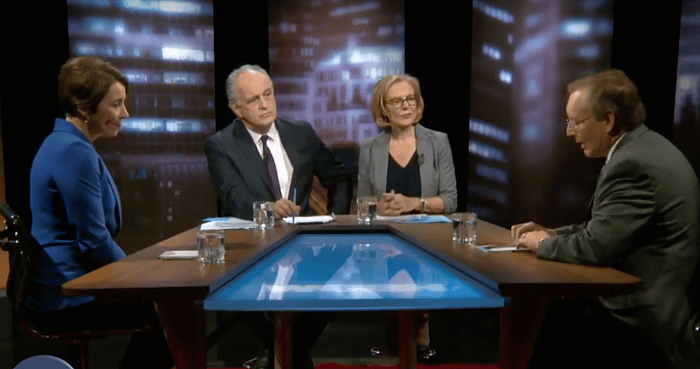Justice System Racist? AG Healey: Yes GOP’s McMahon: No

Massachusetts Attorney General Maura Healey and Republican challenger Jay McMahon clashed on guns, the state's gender-identity law, the president's travel ban, U.S. Supreme Court nominee Brett Kavanaugh, and whether the criminal justice system is racist during a debate Wednesday.
Healey, a Democrat finishing her first term who lives in Charlestown, and McMahon, a criminal defense lawyer who lives in Bourne, appeared on WGBH-TV Channel 2 in the debate, which was moderated by Jim Braude and Margery Eagan.
